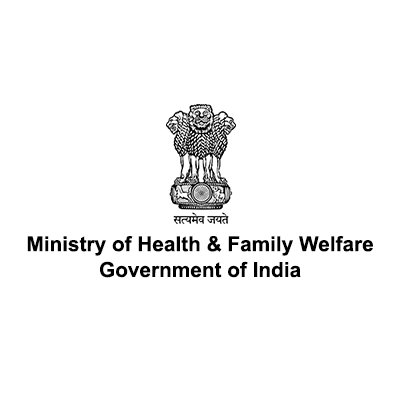8 states contributed 85pc COVID-19 caseload, 87pc deaths: Health Ministry
The ministry said it briefed the Group of Ministers on COVID-19 on the coronavirus situation in the country and the efforts to boost healthcare infrastructure on Saturday. "It was mentioned that presently eight states - Maharashtra, Tamil Nadu, Delhi, Telangana, Gujarat, Uttar Pradesh, Andhra Pradesh and West Bengal - contribute 85.5 per cent of active caseload and 87 per cent of total deaths in India," it said in a statement.

- Country:
- India
Eight states, including Maharashtra, Delhi, and Tamil Nadu, contributed 85.5 percent of the active COVID-19 caseload and 87 percent of the total deaths due to the disease in India, according to the Union Health Ministry. The ministry said it briefed the Group of Ministers on COVID-19 on the coronavirus situation in the country and the efforts to boost healthcare infrastructure on Saturday.
"It was mentioned that presently eight states - Maharashtra, Tamil Nadu, Delhi, Telangana, Gujarat, Uttar Pradesh, Andhra Pradesh, and West Bengal - contribute 85.5 percent of active caseload and 87 percent of total deaths in India," it said in a statement. India has reported five lakh COVID-19 cases with the worst single-day jump of 18,552 cases on Saturday. The death toll has climbed to 15,685.
The health ministry said it also briefed the GOM during its 17th meeting about the recovery and mortality rates, doubling rate, and ramped up testing in various states. It told the GOM 15 central teams consisting of public health experts, epidemiologists, and a senior joint secretary-level officer have been deployed to provide support to the states. Another central team is currently visiting Gujarat, Maharashtra, and Telangana to strengthen ongoing efforts for the management of COVID-19, it said.
The GoM was also briefed about the utility of ITIHAS and Aarogya Setu in contact-tracing and prediction of potential hotspot areas. The Group of Ministers was told that the key focus areas continually communicated to states and UTs are strict containment measures and surveillance, utilizing full testing capacity and focus on monitoring of the co-morbid and elderly population and predicting emerging hotspots leveraging digital tools such as Aarogya Setu. They have also been asked to ensure seamless patient admission processes, fatality mitigation by effective clinical management; focus on infrastructure preparedness (critical care beds, oxygen, ventilators, and logistics), and ensuring that non-COVID healthcare services are not impacted.
Balram Bhargava, the ICMR Director General, gave a detailed presentation on the testing strategy. He explained about the serological survey and the increasing capacity for enhanced per-day testing through various tests. The samples tested in the last 24 hours have increased to 2,20,479, taking the total number of samples tested so far to 79,96,707, the statement said.
India now has 1,026 diagnostic labs dedicated to COVID-19. This includes 741 in the government sector and 285 private labs, Bhargava told the Group of Ministers. The GoM was also apprised that as of June 27, the COVID-related health infrastructure has been strengthened with the availability of 1,039 dedicated COVID Hospitals with 1,76,275 isolation beds, 22,940 ICU beds, and 77,268 oxygen-supported beds, the ministry said.
Also, 2,398 dedicated COVID Health Centres with 1,39,483 isolation beds, 11,539 ICU beds, and 51,321 oxygen-supported beds have been operationalized. Moreover, 8,958 COVID Care Centres with 8,10,621 beds are now available in the country. The Centre has provided 185.18 lakh N95 masks and 116.74 lakh Personal Protective Equipment to the states, UTs, and Central institutions. In a detailed presentation by K Shivaji, the chairman of the Empowered Group-10, the GoM was briefed that the stipulated redressal time on COVID-19 public grievances was brought down from the usual 60 days for normal public grievances to three days.
The National Dashboard for COVID-19 was launched on April 1 for exclusive monitoring of related public grievances. From March 30 to June 24, the Empowered Group disposed 93.84 percent of the 77,307 grievances received for central ministries and 63.11 percent of the 53,130 grievances received pertaining to state governments.
(This story has not been edited by Devdiscourse staff and is auto-generated from a syndicated feed.)
ALSO READ
Two houses gutted in fire in Andhra Pradesh's Kakinada
CBI creates e-mail id sandeshkhali@cbi.gov.in where people from West Bengal's Sandeshkhali can file complaints of land grab: Officials.
CBI creates e-mail ID for land-grab victims in West Bengal's Sandeshkhali
West Bengal: BJP's Suvendu Adhikari extends greetings on Eid-Ul-Fitr
Andhra Pradesh Election Commissioner offers prayers at Srikalahasteeshwara temple










